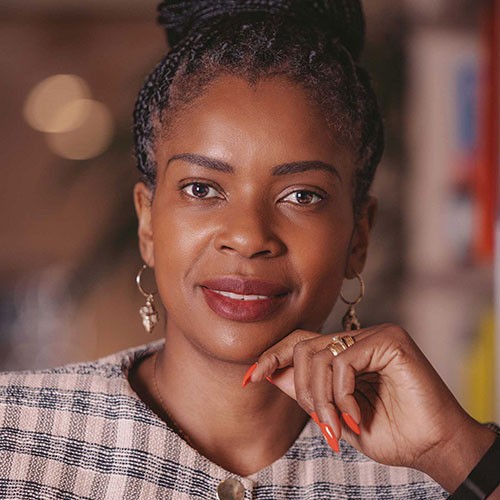
As the case for adopting sustainability reporting gains wider acceptance, the response from governments across the globe is being increasingly scrutinised.
According to Fredrick Riaga, chief executive of the African Association of Accountants General, sustainability reporting will help to improve transparency, align with UN Sustainable Development Goals (SDGs), boost risk management and improve decision-making, as well as supporting economic growth.
‘We are scanning the whole environment within the Mauritius public sector’
Setting the standard
‘Sustainability reporting can improve a country’s attractiveness to investors, who increasingly prioritise responsible business practices,’ he says, adding that governments that establish their sustainability credentials ‘place themselves as candidates to access the green capital market, which is the next frontier for international financing’.
For many countries in Africa, the journey to sustainability reporting is driven by the sustainability disclosures standard set be implemented by the International Public Sector Accounting Standards Board (IPSASB) in the second half of 2025.
‘We are scanning the whole environment within the public sector to identify agencies involved in reporting on matters relating to sustainability,’ says Sunil Ramdeen FCCA, accountant general of Mauritius.
‘The first sustainability report will come out in 2025′
The public sector in Mauritius is very much geared up to fulfilling its commitments relating to the United Nations Paris Climate Agreement and SDGs, says Ramdeen. ‘It is reporting on all SDGs to the United Nations Economic and Social Council in a timely manner,’ he says. ‘The Environment Act has been updated and a new Climate Change Act enacted, with the aim of more robust management of the UN’s nationally determined contributions.’
Mauritius has also developed a sustainable finance framework. Since 2015 the Stock Exchange of Mauritius (SEM) has been promoting sustainability, good governance and transparent business practice. The SEM Sustainability Index has been designed to monitor the price performance of SEM-listed companies that have undergone comprehensive, independent audit to ensure their commitment to best sustainability practices.
Training strategies
In Tanzania, some sustainability reporting is also under way, but this is being undertaken in ‘silos’, according to the country’s accountant general, Leonard Mkude. While some Of Tanzania’s public sector organisations already report to UN agencies, Mkude is in the process of issuing a circular mandating sustainability reporting. A new cross-departmental team will examine which disclosures should be made and which metrics used; the coming months will focus on training and system optimisation, with a group of experts to be certified in sustainability reporting skills.
‘The first sustainability report will come out in 2025,’ he says.
‘The biggest challenge is convincing stakeholders’
Uganda, meanwhile, is facing significant upheaval in its shift to sustainability reporting, including the potential restructuring of central government budgets to harmonise with the needs of the changed disclosure regime. That will require cabinet and parliamentary backing, which Lawrence Semakula FCCA, the country’s accountant general, expects to be a ‘daunting’ task. ‘The biggest challenge is convincing the stakeholders,’ he admits.
Aid incentive
The fact that many international agencies are tying aid to sustainability reporting makes it vital that countries ramp up their efforts. ‘It means that we will definitely be forced to deliver sustainability reporting,’ Semakula adds.
Of course, in any reporting project there is the question of which key metrics to use. In Mauritius, Ramdeen says that his office is working with the Department of Climate Change to determine which information might best illustrate the country’s performance; a steering committee is also due to be convened.
‘The input of technical people – the economists, the accountants – will be crucial’
‘This is where the input of technical people – the economists, the accountants – will be crucial, to come up with an agreed national way of looking at sustainability reporting,’ Ramdeen says.
In Tanzania, too, the terms of reference and draft metrics are currently being drawn up, with the new team expected to be ‘documenting and designing the system’ between July and September, Mkude says.
Focus on skills
Riaga notes that new skills will be needed to understand the reporting standards, inform the work on internal controls and integrate sustainability information into existing financial reports, as well as to identify and define metrics. New sustainability reporting will, says Riaga, enable readers of reports – including investors – to assess the ‘long-term viability and impact’ of government departments.
‘This shift requires accountants general to expand their expertise beyond historical financial performance,’ he says.
Ramdeen acknowledges that Mauritius has some work to do. ‘This capacity is something we have to build,’ he observes. ‘We are scanning the whole system to see what expertise is available and where we need more.’
International partnerships
While skills do exist in pockets within the public sector, Mauritius will likely consult with the International Monetary Fund, the World Bank and the African Development Bank for guidance on how to fill knowledge gaps, Ramdeen says. ‘We have to work closely with these agencies to see how we can bring in the expertise required.’
The story is similar elsewhere. Mkude describes how Tanzania will work with private sector experts such as EY, which is already advising the Ministry of Finance. ‘We are going to analyse the gaps and, should we need to, we might explore using other agencies,’ he says.
‘External agencies and advisers will play a critical role in supporting the transition’
Meanwhile, the Swedish International Development Cooperation Agency is advising Uganda on sustainability in procurement. ‘We have some capacity to begin with,’ Semakula says. ‘We shall be able to supplement that with development partners.’
For Riaga, organisations like the UN Environment Programme Financial Initiative and the GRI will be important for disseminating knowledge, while the IMF could provide technical assistance and capacity-building programmes. Outside agencies will also advocate for change and potentially share benchmarking data.
‘External agencies and advisers will play a critical role in supporting the transition,’ he says.
As the front line in public financial management, and with sustainability reporting viewed as a key addition to finance departments’ skillsets and critical in the transition to a low-carbon world, Africa’s accountants general will need to draw on all the support on offer – and all their leadership skills.


